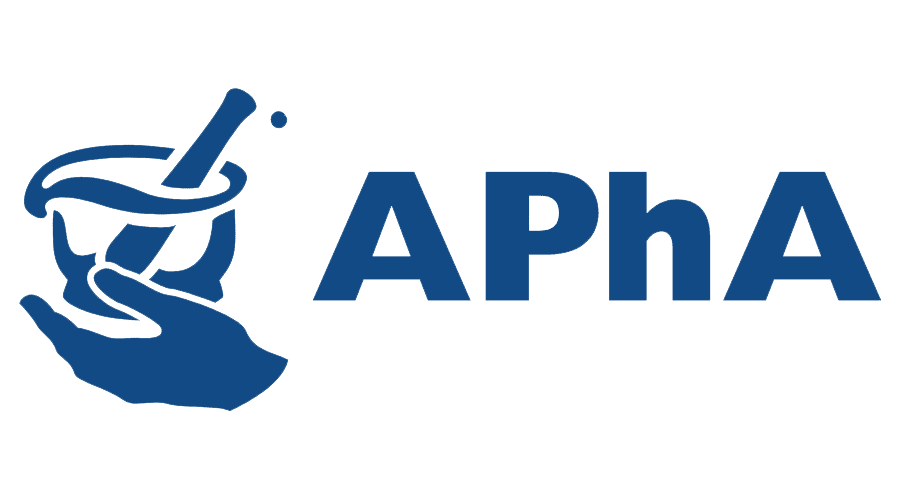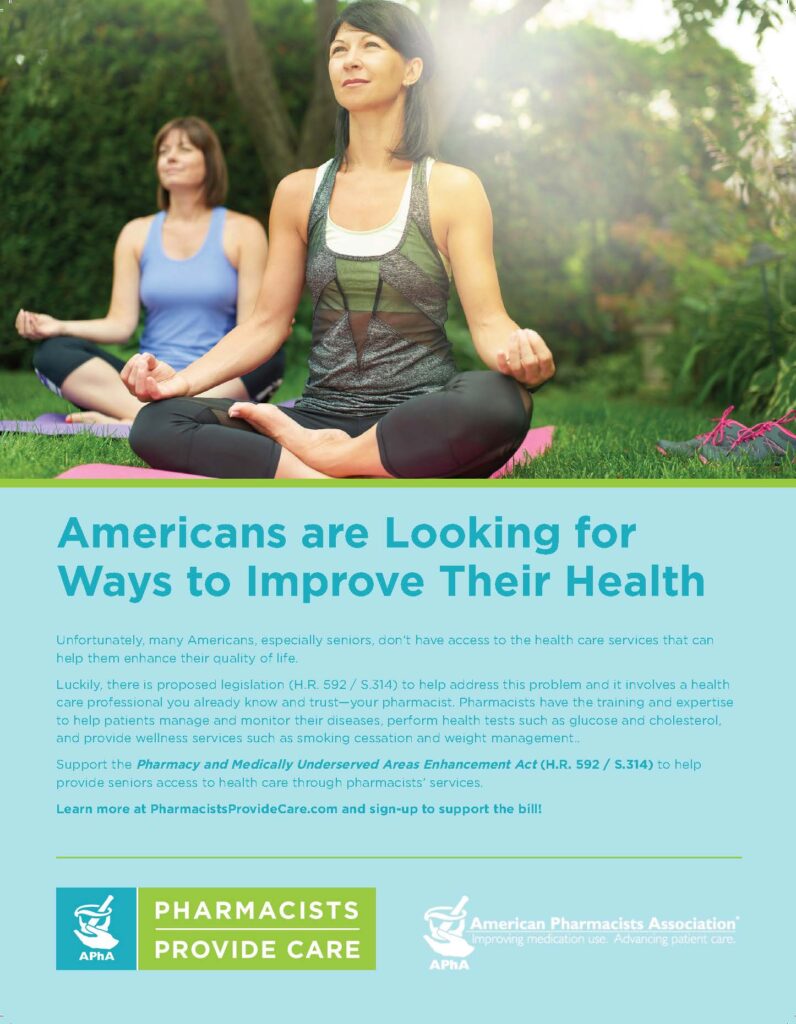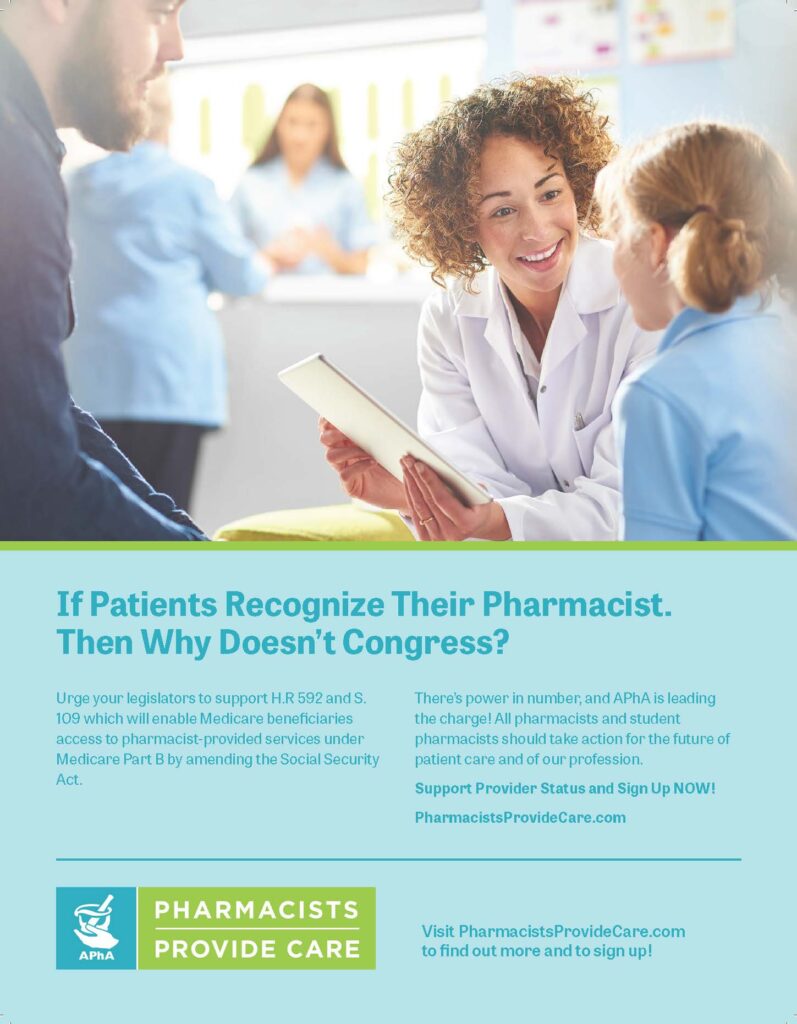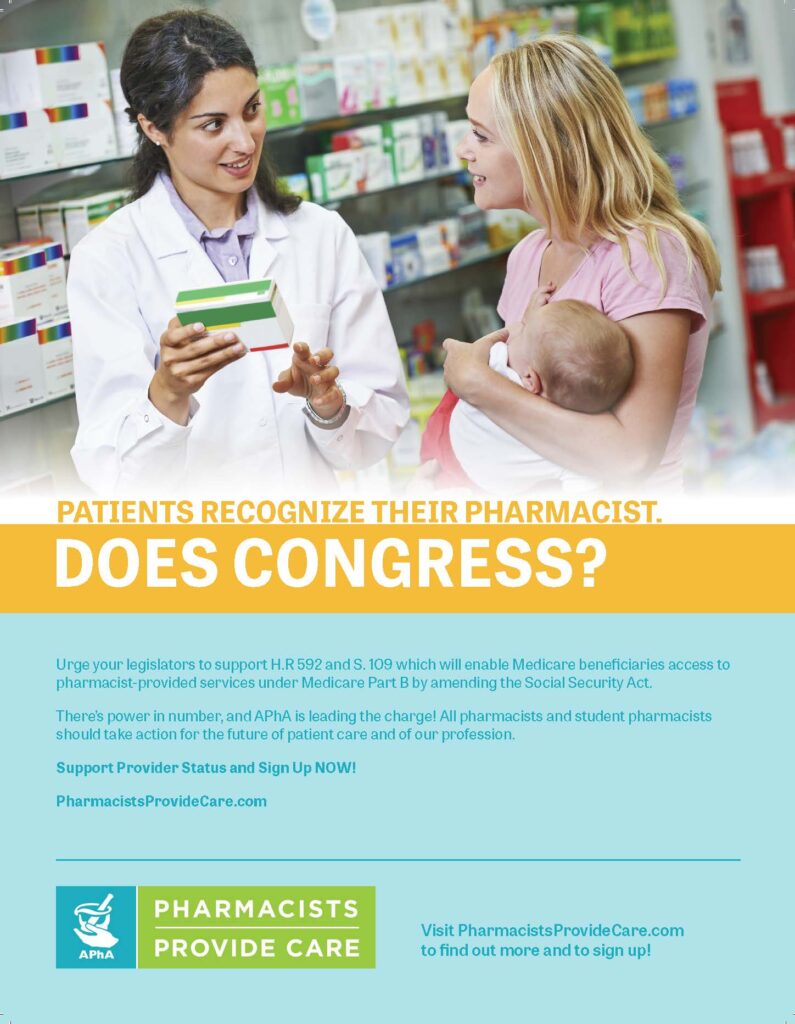
APhA Pharmacists Provide Care Advocacy Program.
We developed and executed a public affairs campaign to educate and engage pharmacists to ultimately achieve “provider status” recognition under federal law for America’s pharmacists.
The Challenge
Pharmacists are not currently recognized as healthcare providers under federal law, despite having more medication education and training than any other health care professional. This lack of federal recognition restricts the contributions pharmacists can make to improving patient care.
We developed and executed a public affairs campaign to educate and engage pharmacists on the issue, and ultimately achieve “provider status” recognition under federal law for America’s pharmacists.



The Results
The campaign videos garnered more than 100,000 views, as well as a 1073% increase in Facebook engagement and a 498% uptick in Twitter engagement. Pharmacists nationwide are now 30% more likely to be familiar with the issue; 6 in 10 know about the campaign and 73% are likely to or have become involved.
Overall, 20,000 supporters sent more than 24,000 communications to Congress during the campaign push, resulting in 296 cosponsors in the House and 51 cosponsors in the Senate on provider status legislation.
